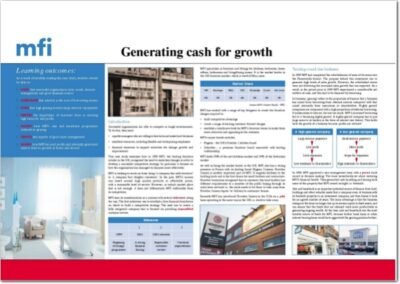Decentralization could spark considerable changes in the crypto-economy leading to abundance, and theoretical economical situations, such as post-capitalism, post-scarcity, etc. At the same time, Digital Decentralization has all of the makings to solve negative externalities that may threaten humanities?
In today’s world, digital decentralization became a necessity for many people, not merely a luxury — although, it was meant to be the other way around. In his acclaimed article The Atlantic (2012), Bruce Sterling, a talented science fiction writer, referred to global giants such as Google, Facebook, and Amazon as “The Stacks”, explaining that a massive power grab is bound to occur — in some ways, it already has. As time goes on, these giants consume more and more of our lives. For this reason, now more than ever, it’s crucial that technologies push back and develop solutions that empower the people to fight back.
In 2010, disintermediation was triggered by the process of digital decentralization; in particular, payment decentralization of Bitcoin (BTC). Disintermediation has been applied in many sectors, beginning with digital asset management and decentralized identity to decentralized prediction markets and gaming services.
Naturally, there are some sectors that have not been influenced at all by this process — the sectors with monopolistic power, one of which being Commerce. It used to be possible to register physical assets on blockchains for a period of time, but it didn’t allow a complete decentralization of the commerce system.
Why is there such a desire to decentralize commerce? Does the commerce system we have today, ruled by centralized businesses, satisfy the people’s needs? We only just got used to the idea that we can order anything online that we need and get it all at once. If we’re not satisfied with an item, our issue will be considered by the company and a solution that satisfies both parties will be offered.
Read the expert’s opinion in order to understand how coronavirus affected crypto space in 2020?
INC4, a service that develops blockchain technologies of any complexity, explained a little bit about the crypto space and the process of decentralization. It’s quite complicated to conceptualize in detail the impact that technological progress has on our lives — whether it will truly improve our existence, or merely disguise itself as a mirage. An INC4 Blockchain Engineer went on to explain that, “The decentralization of the finance ecosystem allowed us to understand the usefulness of the legacy of the financial market.”
It won’t be a surprise to anyone if the decentralized Web 3.0 networks become one of the strongest meta innovations in history. This type of technology can increase innovation, economic growth, and foster the rate of technological evolution in such a way that could solve the innovation problem forever. It could cause the meta-system to transform into a post-capitalist, post-scarcity crypto economy of abundance and at the same time, solve negative externalities that threaten humanities.
So, what does commerce decentralization offer? Huge legacy systems full of people’s activities disables development and progress. Centralization could lead to systemic inefficiencies and bottlenecks, burying multiple fresh ideas. As such, decentralized value chains are far more effective. In order to eliminate data hoarding, a decentralized commerce network should be complete with automated tools in order to replace the coordination of centralized transactions and a Web 3.0-powered data marketplace.
How DeFi could positively impact the area of e-commerce
Current decentralized systems can eliminate intermediaries and the necessity to trust third parties by introducing arbitration that ushers in friction and cost. Such costs will lead to a situation where transactions under roughly $100 dollars will break the business model as the arbitration fees cannot be reduced below a certain threshold.
Due to recent innovations in this area, transactions may be completed with nonfungible-token vouchers, efficiently turning them into future contracts which minimize the public’s need for arbitration. Closing the connections that place people into the present extractive networks is a complicated task; however, it must be done no matter the cost, before decentralization encompasses not only the digital world but the living world, as well.
 Generating cash for growth (PDF)
Generating cash for growth (PDF) 